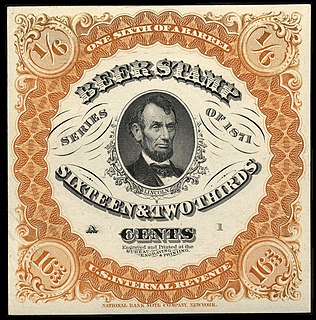
Smoking bans, or smoke-free laws, are public policies, including criminal laws and occupational safety and health regulations, that prohibit tobacco smoking in workplaces and other public spaces. Legislation may also define smoking as more generally being the carrying or possessing of any lit tobacco product.
Proposition 63 was a California ballot proposition on the November 2, 2004 ballot. Its official name and title on the ballot was the Mental Health Services Act. It passed with 6,191,691 (53.8%) votes in favor and 5,337,216 (46.2%) against.

The Omnibus Budget Reconciliation Act of 1990 is a United States statute enacted pursuant to the budget reconciliation process to reduce the United States federal budget deficit. The Act included the Budget Enforcement Act of 1990 which established the "pay-as-you-go" or "PAYGO" process for discretionary spending and taxes.

The California state elections, 2006 took place on November 7, 2006. Necessary primary elections were held on June 6. Among the elections that took place were all the seats of the California's State Assembly, 20 seats of the State Senate, seven constitutional officers, and all the seats of the Board of Equalization. Votes on retention of two Supreme Court justices and various Courts of Appeal judges were also held. Five propositions were also up for approval.
Proposition 86 was a proposed initiative state constitutional amendment and statute on the California general election ballot of November 7, 2006. Its primary intent was to impose a $2.60 per pack excise tax on the retail sale of tobacco cigarettes, as well as to levy a similar excise upon the sale of other commercial tobacco products, such as cigars and chewing tobacco. The proposition was defeated with 3,607,506 "Yes" votes, for 48.0 percent of the total number of votes cast.

California Proposition 10 (1998) is an initiative state constitutional amendment that appeared in the 1998 California General Election. The official name of this amendment is “The Children and Families First Act.” This amendment put a $.50 tax on cigarettes, and even up to $1 on other tobacco products such as chewing tobacco and cigars. The revenue from this tax would go to funding early childhood education in California. The tax went into effect January 1, 1999.

An excise or excise tax is any duty on manufactured goods which is levied at the moment of manufacture, rather than at sale. Excises are often associated with customs duties ; customs are levied on goods which come into existence – as taxable items – at the border, while excise is levied on goods which came into existence inland.
Drug policy of California refers to the policy on various classes and kinds of drugs in the U.S. state of California. Cannabis possession has been decriminalized and is soon to be legalised following legislation changes, but its cultivation and sale remain criminal offenses, along with the possession, sale, and manufacture of harder drugs such as methamphetamine and cocaine. With respect to many controlled substances, terms such as illegal and prohibited do not include their authorized possession or sale as laid out by applicable laws.

The use of tobacco for smoking in New Zealand has been subjected to government regulation for a number of decades. On 10 December 2004, New Zealand became the third country in the world to make all indoor workplaces including bars and restaurants smoke-free.

In the United States cigarettes are taxed at both the federal and state levels, in addition to any state and local sales taxes and local cigarette-specific taxes. Cigarette taxation has appeared throughout American history and is still a contested issue today.

Regulation of tobacco by the U.S. Food and Drug Administration began in 2009 with the passage of the Family Smoking Prevention and Tobacco Control Act by the United States Congress. With this statute, the Food and Drug Administration (FDA) was given the ability to regulate tobacco products.
The Massachusetts Tobacco Cessation and Prevention Program (MTCP) is an anti-tobacco program run by the Massachusetts Department of Public Health with the goal of decreasing tobacco prevalence in the state of Massachusetts. MTCP has four main components: preventing youth smoking, protecting against second hand smoke, assisting current smokers with quitting, and eliminating tobacco related disparities. Since the program began in, adult smoking rates have declined from 22.6% in 1993 to 16.1% in 2008, allowing Massachusetts the 4th lowest smoking rates in the country.
SmokinginCanada is banned in indoor public spaces, public transit facilities and workplaces, by all territories and provinces, and by the federal government except Alberta. As of 2010, legislation banning smoking within each of these jurisdictions is mostly consistent, despite the separate development of legislation by each jurisdiction. Notable variations between the jurisdictions include: whether, and in what circumstances ventilated smoking rooms are permitted; whether, and up to what distance away from a building is smoking banned outside of a building; and, whether smoking is banned in private vehicles occupied by children.

Proposition 29, the California Cancer Research Act, is a California ballot measure that was defeated by California voters at the statewide election on June 5, 2012.
Tobacco smoking in the United Kingdom is prevalent among a sizeable, but continuously reducing minority of the population. Smoking is legally permitted, with certain conditions upon location arising from the bans enacted separately in England, Wales, Scotland and Northern Ireland. It has been argued that smoking puts considerable strain upon the NHS due to the health problems which can be directly linked with smoking. Successive UK Governments have endeavoured to reduce the prevalence of smoking. As part of this commitment, the NHS currently offers free help to smokers who want to quit.

Proposition 56 is a California ballot proposition that passed on the November 8, 2016 ballot. It increased the cigarette tax by $2.00 per pack, effective April 1, 2017, with equivalent increases on other tobacco products and electronic cigarettes containing nicotine. The bulk of new revenue is earmarked for Medi-Cal.

California state elections in 2018 were held on Tuesday, November 6, 2018, with the primary elections being held on June 5, 2018. Voters elected one member to the United States Senate, 53 members to the United States House of Representatives, all eight state constitutional offices, all four members to the Board of Equalization, 20 members to the California State Senate, and all 80 members to the California State Assembly, among other elected offices.











